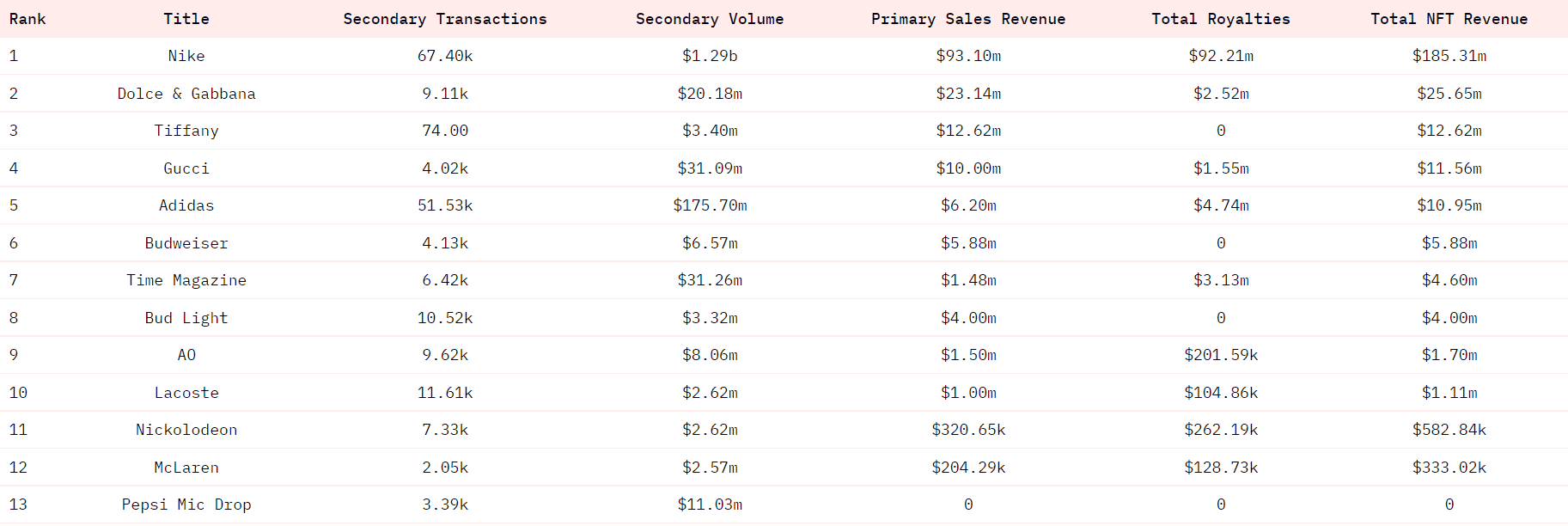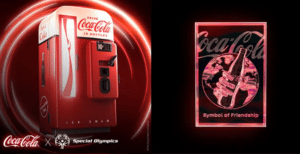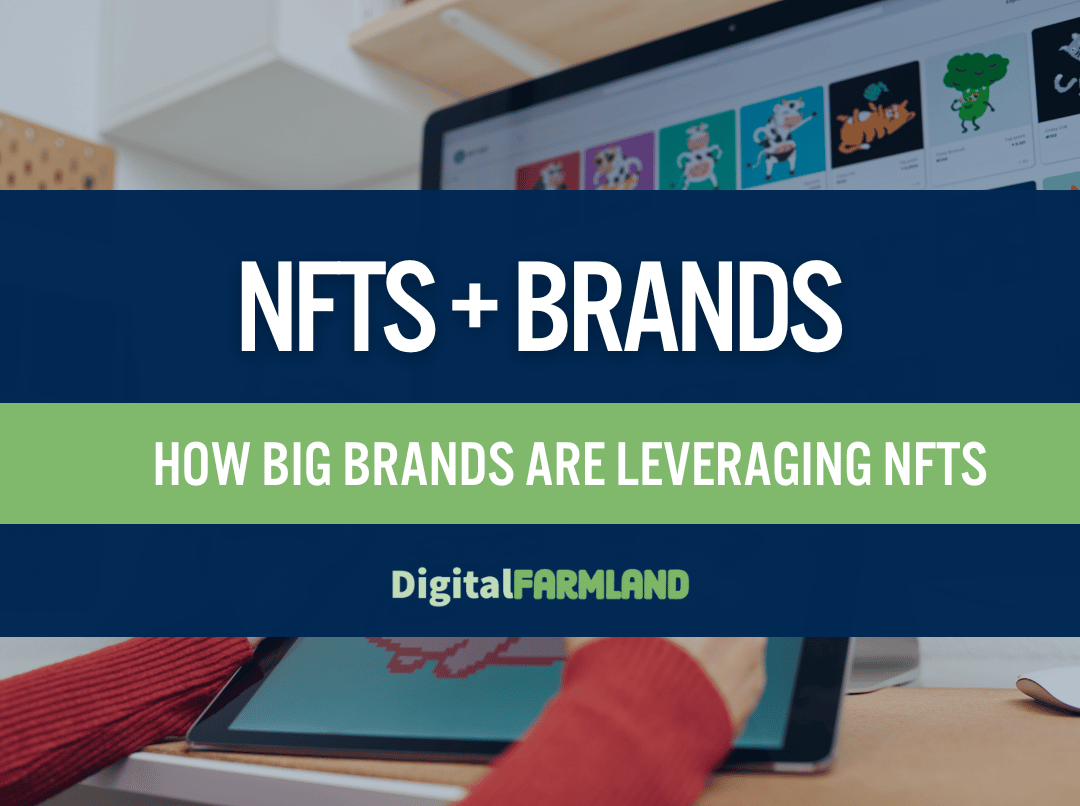The blockchain technology behind cryptocurrencies Ethereum or Bitcoin allows companies to issue digital assets called NFTs, “nonfungible tokens.“
These unique pieces of data can be as simple as a digital image or represent something tangible — like a product, a person, or even a song — and can’t be copied.
Disney, Coca-Cola, Nike, and others have all jumped in on the craze.
The numbers aren’t bad either.
Revenues of $185+ million for Nike or Budweiser with $6+ million in total NFT revenues.
Secondary sales are solid as well. While Pepsi didn’t profit or have a royalty percentage, they are still generating a lot of exposure for their brand.

Compared to these companies’ overall revenue these NFT sales are minuscule.
Are these big brands just selling overpriced JPEG images? or do they provide something of value?
It’s probably a little bit of both. But the biggest benefit is the marketing exposure they receive.
NFTs Provide Inexpensive Marketing for Brands
Many companies donate physical items such as memorability or company swag to local charity auctions and fundraisers in exchange for advertising exposure.
With Non-Fungible Token charity auctions, it’s now possible to reach not only local events but events worldwide. Including virtual worlds.
 The beverage giant Coca-Cola announced it is joining the cryptocurrency craze with a charity auction for collectible bottles featuring designs inspired by the brand’s history. The proceeds raised from the sale went to charities. They sold $575k at the auction.
The beverage giant Coca-Cola announced it is joining the cryptocurrency craze with a charity auction for collectible bottles featuring designs inspired by the brand’s history. The proceeds raised from the sale went to charities. They sold $575k at the auction.
Not only were they able to raise funds for a good cause, but were able to get in front of targeted and niche consumer groups.
NFTs Build Stronger Relationships With Customers
One of the biggest benefits of NFTs is that they provide a way for brands to connect directly with their customers.
By offering unique items people can purchase, give, or trade, companies can encourage their followers to interact with them on social media and engage with their brand.
This helps strengthen existing relationships and establish new ones. As a result, customers feel more loyal to the brand and are more likely to buy additional products or services.
Companies Prepare for the Metaverse
One concept for brands is they are investing in NFT initiatives because they know the virtual reality landscape is the next frontier.
While VR headsets like Oculus Rift have been around for quite some time now, the Metaverse is just beginning to emerge.
By jumping on now, they can gain high-traffic real estate in these virtual worlds.
Modernizing Company Offerings with NFTs
Baseball cards were initially advertising placement on the back of cigarette packages. As they became popular collectibles, the trading card was born.
The new modern collectible card whether it’s Pokemon or baseball will be in the form of NFTs.
For example, in a bid to capitalize on fan interest in collectible items related to basketball, the National Basketball Association (NBA) created Top Shots.

Fans purchase digital versions of iconic images taken during games and other events.
It’s not only efficient but a lot of fun too.
The Future for Brands and Blockchain?
To stay with the new trends, companies must modernize to adopt blockchain.
Blockchain technology may be too early to provide real value to consumers for some brands.
Additionally, with so many scams, companies may choose to stay away until the industry becomes more stable.
Ultimately, it’s anticipated more brands will jump onto the craze. As more brands launch campaigns the space will only get more competitive.
As competition heats up it will drive innovation, and consumers will benefit by receiving NFTs that are of actual value or utility rather than an overpriced JPEG with bragging rights.


